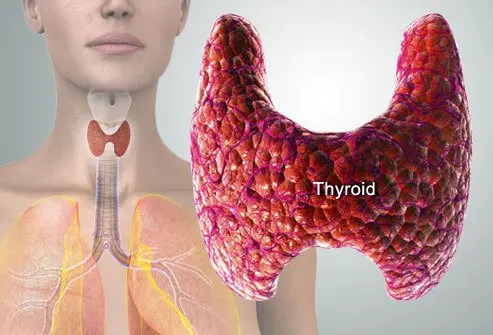
From Amenorrhea to Menorrhagia: How Thyroid Dysfunction Alters Your Period
The menstrual cycle is a delicate dance of hormones, and your thyroid is the backstage choreographer. This small, butterfly-shaped gland in your neck plays a big role in regulating your reproductive hormones. When your thyroid is out of balance, whether underactive (hypothyroidism) or overactive (hyperthyroidism), your menstrual cycle can quickly follow suit, leading to conditions like amenorrhea (missed periods) or menorrhagia (heavy bleeding).
If your periods are irregular, unusually heavy, or missing altogether, your thyroid may be the hidden culprit. This blog breaks down how thyroid disorders influence your menstrual health and what you can do about it.
Understanding Amenorrhea and Menorrhagia
What Is Amenorrhea?
Amenorrhea is the medical term for the absence of menstruation.
- Primary Amenorrhea: When a girl hasn’t had her first period by age 15.
- Secondary Amenorrhea: When a woman who previously had regular cycles misses three or more consecutive periods.
Thyroid dysfunction, especially hyperthyroidism, can suppress ovulation and disrupt the release of hormones like GnRH, FSH, and LH, leading to missed cycles.
Think of amenorrhea as your body’s way of signaling that the reproductive system is temporarily shut down due to hormonal imbalances, often linked to the thyroid.
What Is Menorrhagia?
Menorrhagia is defined as abnormally heavy or prolonged menstrual bleeding.
Clinically, this means:
- Bleeding for more than 7 days
- Losing more than 80 milliliters of blood per cycle (roughly double the average)
- Needing to change sanitary products every 1–2 hours
This is often linked to hypothyroidism, which alters estrogen metabolism, making the uterine lining thicker and the bleeding heavier.
In simple terms: If your period keeps you homebound for days, soaks through products quickly, or leads to fatigue or anemia, it could be menorrhagia, and your thyroid may be to blame.
How Hypothyroidism Affects the Menstrual Cycle
Hypothyroidism occurs when the thyroid doesn’t produce enough thyroid hormones (T3 and T4), causing high levels of TSH. This hormonal imbalance affects the reproductive system in multiple ways:
Key Effects on Periods:
- Menorrhagia (heavy periods): Common due to prolonged estrogen stimulation of the endometrium.
- Oligomenorrhea (infrequent periods): Caused by disrupted ovulation.
- Amenorrhea: Seen in more severe or untreated cases.
- Breakthrough Bleeding: Sporadic, unpredictable bleeding between cycles.
Real-Life Example:
A teenage girl with severe anemia and fatigue due to heavy menstrual bleeding was diagnosed with primary hypothyroidism. Her cycle normalized after undertaken a synthetic thyroid hormone treatment.
How Hyperthyroidism Affects the Menstrual Cycle
Hyperthyroidism results from an overactive thyroid gland producing excess T3 and T4, often seen in Graves’ disease.
Primary Menstrual Effects:
- Hypomenorrhea: Very light periods
- Oligomenorrhea: Infrequent cycles
- Amenorrhea: Absent periods in extreme cases
- Early Menopause-like Symptoms: Shortened cycles, hot flashes, mood swings
Real-Life Example:
A woman in her early 30s with Graves’ disease experienced periods only once every three months. After antithyroid medication, her cycle gradually returned to normal.
Hypothyroidism vs. Hyperthyroidism – A Quick Comparison
| Effect on Periods | Hypothyroidism | Hyperthyroidism |
| Period flow | Heavy (menorrhagia) | Light (hypomenorrhea) |
| Frequency | Infrequent or absent | Infrequent or absent |
| Ovulation | Disrupted/absent | Disrupted/absent |
| Fertility | Reduced | Reduced |
When to See a Doctor
If you notice any of the following, consult a healthcare provider:
- Periods lasting longer than 7 days
- Bleeding that soaks through products hourly
- Missing your period for 3 or more months
- Unexplained weight gain/loss, fatigue, or mood swings
- Trouble conceiving
Conclusion
From heavy bleeding to missed cycles, your thyroid has a profound impact on your period. If you’re experiencing unexplained menstrual changes, don’t brush them off. Identifying and treating thyroid dysfunction can restore balance — to your hormones and your life.
FAQs
-
Can treating my thyroid restore normal periods?
Yes. Most patients see menstrual regularity return within 2–6 months of starting thyroid treatment.
-
How soon after starting thyroid medication will my period normalize?
For many, improvements occur within 6–12 weeks, but full stabilization can take up to 6 months.
-
Can thyroid problems affect fertility?
Absolutely. Both hypo- and hyperthyroidism disrupt ovulation. Proper treatment significantly improves fertility outcomes.
All Categories
Recent Posts
Why SDG 4 Cannot Be Achieved Without Ending Period Poverty
Tags
Give them a helping hand
Every donation fuels our mission to combat period poverty. Your generosity brings us closer to menstrual equity.
+234-909-482-1642
inquiries@blossomflow.org




